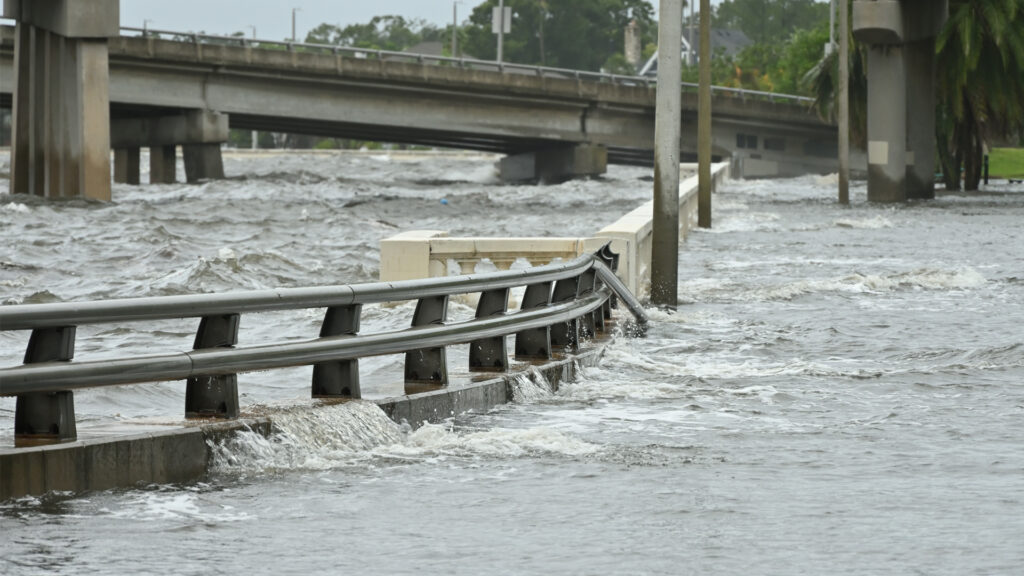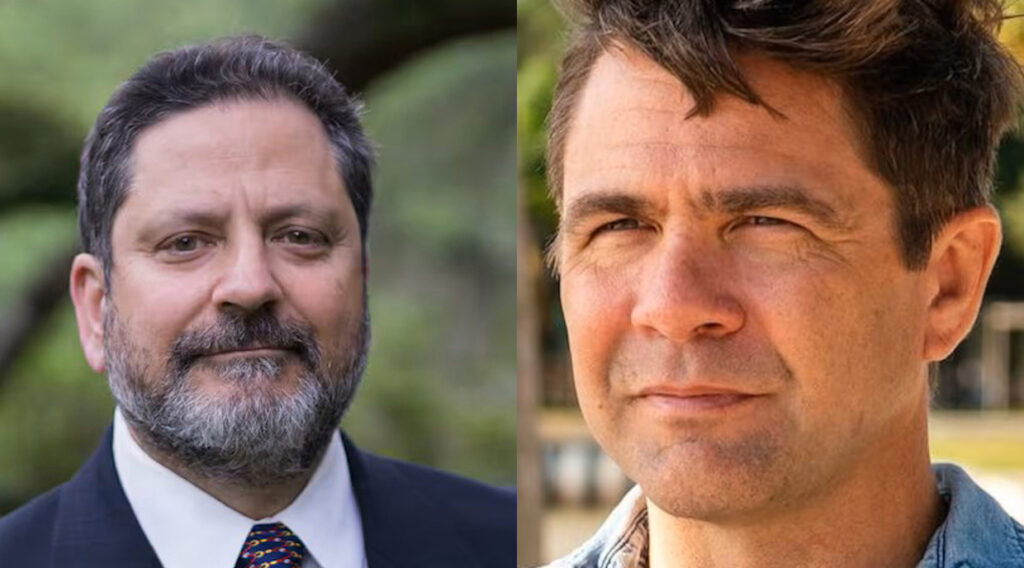By Dominic M. Calabro, Florida TaxWatch; and Brandon Shuler, American Water Security Project
Florida’s 2024 wet season arrived as a deluge with South Florida, Central Florida and parts of the Tampa Bay region experiencing record rainfall and dangerous flooding, underscoring the need for aggressive but disciplined spending on water infrastructure. With the rains come polluted and contaminated urban runoff that causes regrettable coastal environmental damage and human health threats in areas lacking modern infrastructure.
While the rains fell over the peninsula, in Tallahassee, Gov. Ron DeSantis signed the state’s $116.5 billion budget — after vetoing nearly $1 billion in spending, including projects Florida TaxWatch identified in its Budget Turkey Watch report as “water turkeys.” Those are earmarks that did not go through proper vetting to ensure the efficient use of tax dollars to fund effective water quality and supply projects.

The governor did the right thing in vetoing the projects that legislators tried to advance by circumventing established selection processes and through Supplemental Funding Lists, or “sprinkle lists,” a practice that does not align with sound budgeting processes, fiscal transparency, thoughtful deliberation or with the best interests of Florida taxpayers.
The governor’s critics say future damages would have been mitigated if he hadn’t blasted $206 million in water turkeys this year. They overlook the fact that the budget still contains hundreds of millions of dollars in water projects that are vetted though existing processes. In defending recent veto decisions, DeSantis pointed to the “many grant programs (established by my administration) that support the continued maintenance and construction of Florida’s water management structure.”
Indeed, the programmatic approach DeSantis has consistently encouraged is one taxpayers and water quality advocates should applaud. In 2019, the governor issued Executive Order 23-06 (Achieving Even More Now for Florida’s Environment). Grants that address stormwater, wastewater and septic-to-sewer projects are now awarded based on need, proximity to impaired waterways and project efficacy. Consequently, better water projects are happening faster.
Over the past six sessions, the Legislature, to its credit, has also sent big legislative packages to the governor that led to massive investments, fiscal discipline, and more programmatic approaches. Those include but aren’t limited to the Clean Waterways Act (2020), the Environmental Accountability Act (2020) and Environmental Protection (2023). In May, DeSantis signed the landmark SB 1638, Funding for Environmental Resource Management, which dedicates 96% of new Seminole Sports Gambling Compact revenues for land conservation, land management, water infrastructure and resilience projects. That means there will be hundreds of millions annually for water/resilience projects that target the worst problem areas and meet specific technical standards.

Still, we lack one vital approach — a long-term water project work plan, as recommended by Florida TaxWatch. With 76% of Floridians living in vulnerable coastal zones, with sewer infrastructure investment backlogs in the many tens of billions and with 30% of Floridians relying upon septic tanks that leech into our coastal waters daily, we are in the throes of a self-made disaster that requires a systemic, aggressive and financially prudent playbook to resolve these overlapping issues.
We look forward to working with the DeSantis administration and the Legislature to create and implement a comprehensive and coordinated four- to five-year statewide plan to improve, repair or develop water and wastewater infrastructure statewide, with an emphasis on the development of central sewer lines and advanced wastewater treatment facilities.
Tallahassee-based Dominic M. Calabro is president and CEO of Florida TaxWatch. Brandon Shuler, executive director of the American Water Security Project, has worked in numerous states to address problems related to water infrastructure, coastal resilience and fisheries management. He is based in St. Petersburg. This opinion piece was originally published by the Tampa Bay Times, which is a media partner of The Invading Sea.
If you are interested in submitting an opinion piece to The Invading Sea, email Editor Nathan Crabbe at ncrabbe@fau.edu. Sign up for The Invading Sea newsletter by visiting here.



